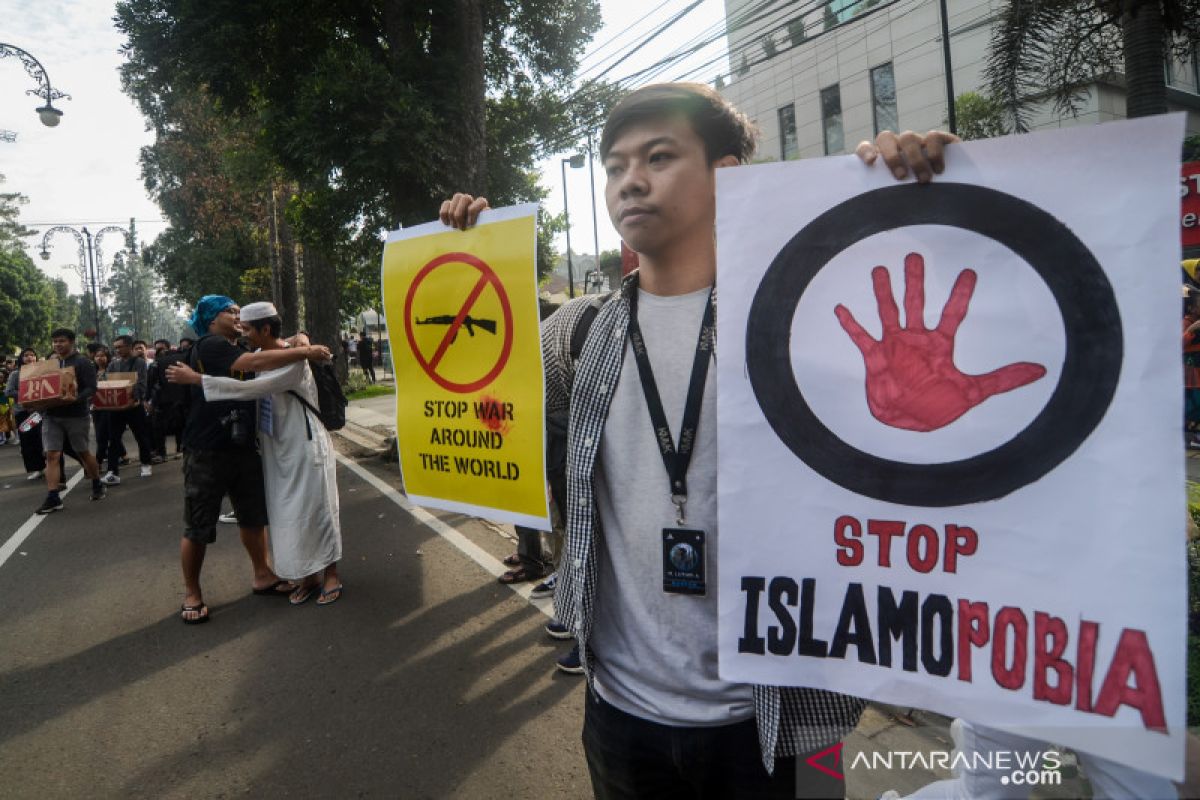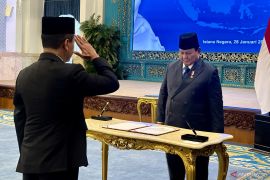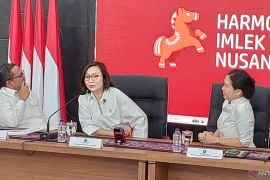Azerbaijan remains steadfast in its commitment to combating Islamophobia on the modern front. Last year, the Baku International Multiculturalism Centre and the Center of Analysis of International Relations, in partnership with the G20 Interfaith Dialogue Forum, convened a conference titled “Islamophobia as a Specific Form of Racisms and Discrimination: New Global and Transnational Challenges” in Baku.
Last year’s conference aimed at contributing to the ongoing efforts to combat Islamophobia in all its forms and manifestations, while the recent objective of the conference is not only to raise awareness but also to develop concrete solutions that address the root causes of Islamophobia and foster global solidarity.
Writers in their books say that Islamophobia is a term that is formed by combining two words, Islam and phobia, which can simply be defined as the fear of Islam. Historically speaking, fear of Islam has developed in Europe since the 7th century.
Since Islam emerged in Arabia, the fear of Islam has been frequently referred to as the “orientalist’s” vision of the Arab world. Meanwhile, fear of Islam emerged within most of the Christian population in Europe since immigrants from Muslim countries began arriving in Europe in the early period of the 14th century.
Islamophobia is, thus, a concept that emerged within the context of changing and dynamic cultural, political, and social relations. Similar to xenophobia and anti-Semitism, Islamophobia is historically rooted. Islamophobia is not a brand-new phenomenon, as it is rooted in the 11th to 13th centuries during the European Crusade and in the late 15th century during the dismissal of Muslims (e.g., Arabs and Africans) from Andalucia.
Islamophobia is also rooted in European colonialism, Orientalism, and East-West dichotomy. Western society has been associating Islam with negative images, stereotypes, and sentiments. Orientalism explains how Western cultural, imperial, and academic works have constructed a dehumanizing representation of the Arab world as “exotic and barbarous Orients.”
By interpreting the West as “civilized” and the Arab world as “backward,” Orientalism demonstrates the earliest stigmatization of Muslim identities and produces negative stereotypes of Eastern cultures to justify colonial ambitions.
According to Benn and Jawad (2003), Islamophobia has escalated since Ayatollah Khomeini’s fatwa in 1989, which provoked Muslims to execute Salman Rushdie, the writer of "The Satanic Verses," and since the 9/11 attacks (Dauda, 2020; Nielsen & Allen, 2002).
In line with this, the International Civil Liberties Alliance (ICLA) (2013) explains that Islamophobia was not documented in English until around the 1950s, and they record that Islamophobia became more extensive after the Iranian fatwa against Salman Rushdie due to his book “The Satanic Verses.” Hasan (in ICLA, 2013) also describes that the terminology “Islamophobia” emerged for the first time in the UK in the 1980s amid the Rushdie issue.
The study of Islamophobia started in 1995 in England where Islam was perceived as a threat, similar to Communism and the Nazi, and associated with infiltration, invasion, and domination (Istiyani & Yuliatun, 2016). Bleich (2011) then argues that Islamophobia initially developed in the 1990s to counter harmful actions and rhetoric against Islam and Muslims in the West. Furthermore, Zuquete (2008) and Lee et al. (2009) explained that “Islamophobia” appeared in modern discussion after the report by the Runnymede Trust (1997), titled “Islamophobia: a challenge for us all.” The report reveals that the term “Islamophobia” has been spread due to the resurgence after the Cold War and the 9/11 attack (Dauda, 2020, Vertovec, 2002).
Islamophobia trends
“Regrettably Islamophobia trends across the world are on the rise. We are witnessing the portrayal of Islam as a potential threat, with doubt, discrimination, and open hatred against the Muslims becoming increasingly widespread with each passing day,” Ilham Aliyev, President of the Republic of Azerbaijan, noted in his address to the conference participants delivered by Hikmat Hajiyev, Assistant to the President of the Republic of Azerbaijan and Head of the Department of Foreign Policy Affairs of the Presidential Administration of the Republic of Azerbaijan.
As stated in the UN resolution on the International Day to Combat Islamophobia, President Aliyev further drew attention to a rise in the instances of discrimination, intolerance, and violence directed against religious communities as the source of concern.
According to the president, it is deplorable that today, Islamophobia has become integrated into the state policies of numerous Western countries that consider themselves to be democratic. These countries account for 80 percent of all the manifestations of Islamophobia that occurred around the world in the last year.
“In some European countries, Islamophobia has skyrocketed and been promoted as an official ideology, with insulting actions, such as the burning of our holy book of Quran and publishing caricatures of the Prophet Mohammad, being presented as the freedom of speech,” President Aliyev stated.
He pointed out that France, along with its traditional neocolonialism policy, is pursuing a policy of open pressure and discrimination, staging various Islamophobia campaigns. Legislative acts and political decisions that exclusively target Muslims, limiting their rights and freedoms, are often disguised as secularism. In this country, mosques, Muslim community centers, and cemeteries are desecrated in one way or another, and Muslim citizens endure oppression.
Meanwhile, the US Council of Muslim Organizations stated that France has continued its efforts to erase visible clothing associated with an individual’s Islamic identity from public spaces.
Most recently, the government banned Muslim students from wearing the abaya, a long, flowing robe-like garment worn by several Muslim women.
“When you walk into a classroom, you should not be able to identify the pupils’ religion just by looking at them," Education Minister Gabriel Attal stated in an interview with TV channel TF1.
Other French ministers also admitted that although the abaya is not a religious garment, students will be targeted based on their assumed religion, thereby further legalizing religious discrimination against French Muslims.
To commemorate the UN’s Second International Day to Combat Islamophobia, the Council has called for the attention of those committed to advancing justice for all people to injustices being perpetrated by the governments of Israel, India, China, and France.
Israel’s decades of occupation and apartheid have arrived at a predictable conclusion: genocide in Gaza. Some states, such as South Africa, have asserted international humanitarian values.
Other states, such as the United States and the United Kingdom, have provided military aid and political comfort to Israel while ignoring the daily stream of videos documenting Gaza’s reduction to rubble and Palestinian civilians crying for food, medicines, or over their dead children.
India’s far-right, anti-Muslim government continues its repression of religious and racial minorities in the nation, particularly Muslims. Moreover, the Chinese government has advanced efforts to “Sinicize” Islam in that nation by erasing mosques and Muslim cemeteries and implementing policies of internment and forced labor for ethnic and religious minorities in the Muslim-majority Xinjiang Province.
Instead of combating these manifestations that insult the feelings of Muslims and holding the perpetrators accountable, the governments of those countries are inflaming Islamophobic sentiments, encouraging the persecution of Muslims and aiming to keep these subjects high on the agenda.
Unfortunately, certain Western institutions that also portray themselves as democratic are engaging in anti-Islamic activities.
President Aliyev has stated that Azerbaijan is also a country that suffers from Islamophobia.
“Among the dire consequences of Armenia’s 30-year-long occupation of our lands was a deliberate destruction and annihilation of our cultural heritage of universal value, including the monuments associated with the Islamic faith,” he stated.
Initial estimates suggested that 65 mosques had been razed to the ground during the occupation. Unfortunately, that number is steadily increasing, as numerous new examples of Armenian vandalism against Islamic heritage continue to emerge.
In the XXI century, there must be no place for Islamophobia, xenophobia, or racism. Associating terrorism and extremism with any civilization or ethnic group is an erroneous approach.
“Using religion for political motives only serves to divide and incite confrontation in the societies. Such manifestations also deprive humankind of the ideals of humanism and universal values, ultimately resulting in inter-civilizational conflicts,” President Aliyev remarked.
*Mohammad Anthoni is ANTARA News Agency's journalist from 1990 to 2019.
The views and opinions expressed on this page are those of the author and do not necessarily reflect the official policy or position of ANTARA News Agency.
Copyright © ANTARA 2024










